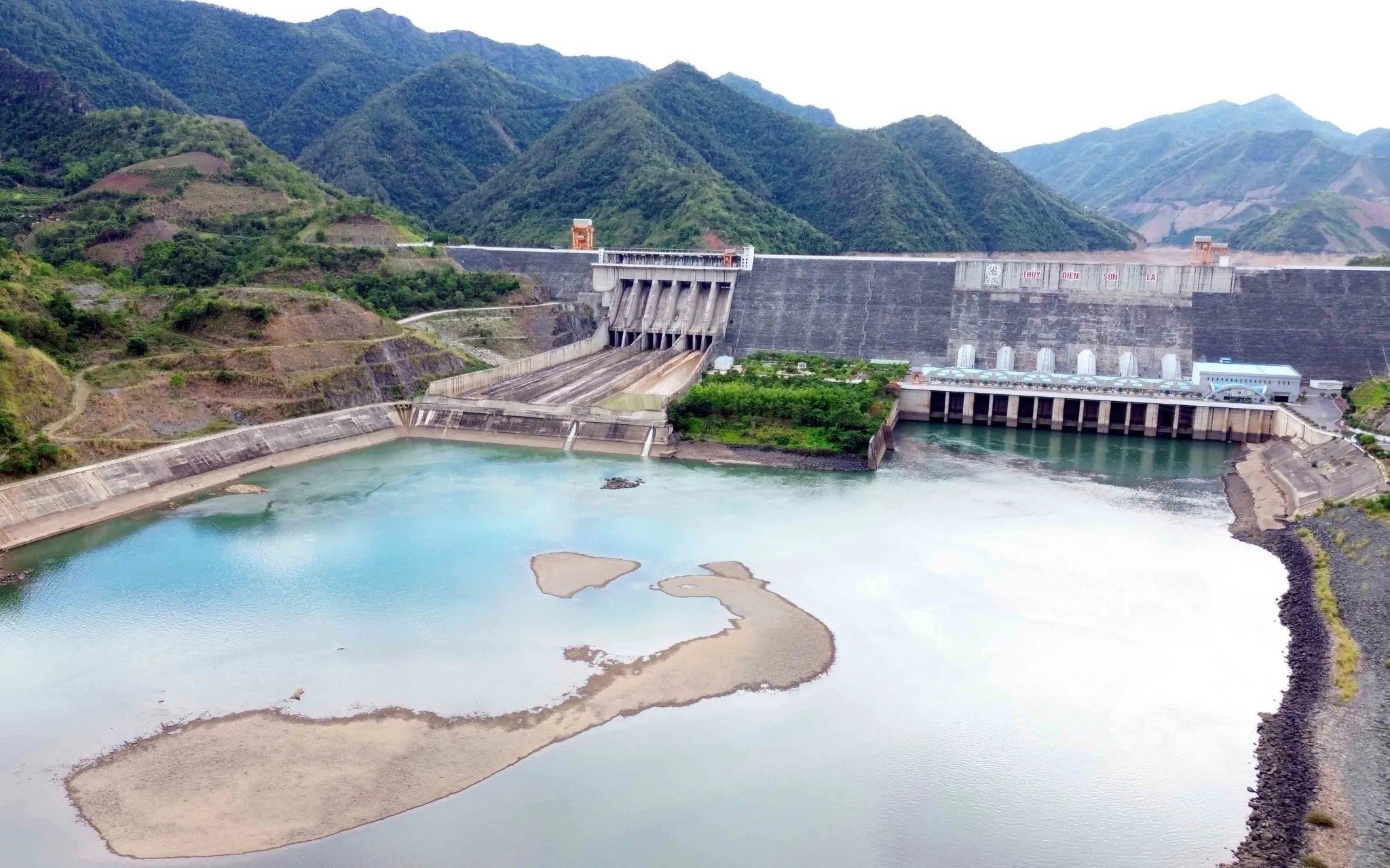
Hot weather and drought have seriously affected production and daily activities of locals in Son La. Photo: VNA
Low water levels plague reservoirs
For the first time ever, Thac Ba Hydropower Plant in Yen Bai province has to halt the operation of two of its three turbines due to the water shortage, while the remaining turbine is running at minimum capacity.
Nguyen Manh Cuong, Deputy General Director of Thac Ba Hydropower JSC, said that since June 1, the water level at Thac Ba reservoir has dropped below the dead level, which is the cutoff for optimal running capacity. In May, power production was 2 million kWh, equivalent to only one-tenth of the amount recorded in the same period last year.
Thac Ba is not the only case in point because of the water shortage. In a report released by the Department of Safety Engineering and Industrial Environment under the Ministry of Industry and Trade (MoIT) on June 8, 11 others across the country have stopped generating electricity.
Reservoirs hurt by sub-dead water levels across the nation include Lai Chau, Son La, Thac Ba, Tuyen Quang, Ban Ve, Trung Son, Thac Mo, and Tri An. In the north, except for Hoa Binh hydropower reservoir, the majority are failing to provide water for the plants.
As a result, the power supply has fallen below the demand for the public’s daily activities and production.
Tran Viet Hoa, Director of the MoIT’s Department of Electricity Regulation, said that the total available capacity of the northern electricity system (including imported electricity) was only 17,500-17,900MW (about 59.2% of the installed capacity). This amount includes about 2,500-2,700MW transmitted from the southern and central regions to the north.
Meanwhile, the demand for electricity in the north may reach 23,500-24,000MW in the coming hot days. Thus, the northern electricity system will face a shortage of about 4,350MW, with an average daily shortage of about 30.9 million kWh and even 50.8 million kWh on peak days.
At the same time, Hoa Binh reservoir can only supply water to the Hoa Binh hydropower plant until June 13. At that time, the power supply in the northern region will be further cut by 5,000MW to 7,000MW, causing a domino effect of cutting into the power supply across the nation.
Urgent solution: power saving
Power expert Tran Dinh Long said that this year, amid the extreme weather conditions due to the impact of the El Nino weather phenomena, power demand tends to surge.
He said that one of the urgent solutions that must be applied immediately is saving electricity. On June 8, the Prime Minister issued a decree on strengthening power saving in the 2023-2025 period and following years.
Vietnam Electricity (EVN) General Director Tran Dinh Nhan said that so far, all the 63 cities and provinces have sketched out plans to conserve electricity. The EVN has coordinated with the Northern Power Corporation (EVNNPC), the Hanoi Power Corporation, and city power companies to regulate the power supply to suit the situation in each locality. Meanwhile, amid rising electricity demands and modest supply, rotating power cuts at certain times is a must, he said.
In order to ensure effective power allocation, on June 8, the EVN asked the EVNNPC to carefully calculate the demand-supply balance and allocate power to provincial power companies, with priority to important activities approved by the provincial People’s Committee as well as crucial socio-political activities and important events.